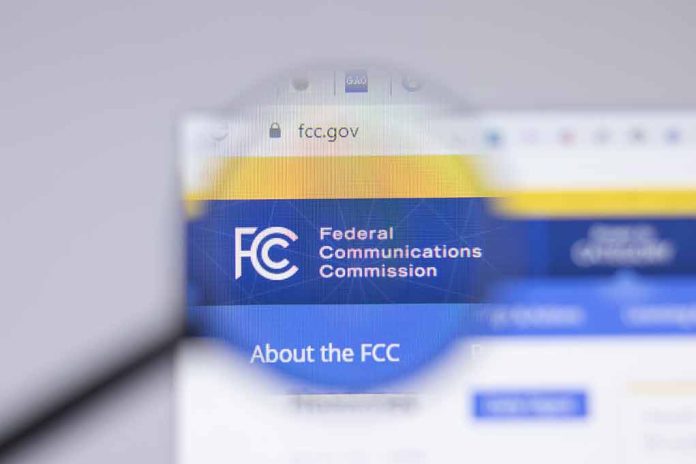
President-elect Donald Trump’s nomination of Brendan Carr as FCC Chairman signals a seismic shift in communications policy, prioritizing free speech and media accountability.
At a Glance
- Trump selects Republican FCC commissioner Brendan Carr to lead the Federal Communications Commission
- Carr is known for his pro-corporate stance and alignment with Trump’s views on social media and tech companies
- The nomination indicates a focus on free speech, deregulation, and countering perceived censorship by tech giants
- Carr plans to enforce public interest obligations for broadcast media and scrutinize foreign ownership of U.S. media outlets
Trump’s Vision for the FCC
In a bold move that underscores his commitment to reshaping America’s media landscape, President-elect Donald Trump has tapped Brendan Carr to lead the Federal Communications Commission (FCC). This decision marks a significant departure from the previous administration’s focus on diversity, equity, and inclusion, instead prioritizing regulatory reforms that address technological censorship and media influence.
The FCC’s most recent budget request said that promoting DEI was the agency’s second highest strategic goal.
Starting next year, the FCC will end its promotion of DEI. pic.twitter.com/we7ViUXczA
— Brendan Carr (@BrendanCarrFCC) November 18, 2024
Trump’s endorsement of Carr is rooted in the commissioner’s track record as a staunch advocate for free speech and his critical stance towards what many conservatives view as overreaching regulations. The President-elect’s statement highlighted Carr’s potential to revitalize the communications sector:
“Commissioner Carr is a warrior for Free Speech, and has fought against the regulatory Lawfare that has stifled Americans’ Freedoms, and held back our Economy. He will end the regulatory onslaught that has been crippling America’s Job Creators and Innovators, and ensure that the FCC delivers for rural America,” said Trump in his statement announcing Carr’s nomination.
Carr’s Vision: Free Speech and Accountability
Brendan Carr, currently serving as a senior Republican commissioner on the Democrat-controlled FCC, brings a wealth of legal expertise to his new role. His background includes serving as the FCC’s general counsel and working in private law practice, experiences that have shaped his approach to communications policy.
Carr’s agenda is expected to prioritize several key areas:
1. Tackling Tech Censorship: Carr has been vocal about dismantling what he terms a “censorship cartel” among big tech companies. He advocates for reforming Section 230 of the Communications Decency Act to limit social media companies’ immunity from liability for content moderation decisions.
2. Media Accountability: In a move that aligns with Trump’s criticisms of mainstream media, Carr supports enforcing public interest obligations for broadcast media. He stated:
“Broadcast media have had the privilege of using a scarce and valuable public resource—our airwaves. In turn, they are required by law to operate in the public interest. When the transition is complete, the FCC will enforce this public interest obligation,” Carr posted on X.
Broadcast media have had the privilege of using a scarce and valuable public resource—our airwaves. In turn, they are required by law to operate in the public interest.
When the transition is complete, the FCC will enforce this public interest obligation.
— Brendan Carr (@BrendanCarrFCC) November 18, 2024
Addressing Foreign Influence and National Security
Carr’s appointment also signals a renewed focus on national security concerns within the communications sector. He has been a vocal critic of Chinese-owned apps like TikTok, advocating for their ban unless they separate from their China-based parent companies. This stance reflects broader concerns about foreign influence in American media and technology.
Additionally, Carr has raised alarms about foreign ownership of U.S. media outlets. He specifically criticized the FCC’s decision to allow George Soros to acquire over 200 American radio stations with foreign investment, stating:
“Foreign company ownership of U.S. radio stations is not supposed to exceed 25%. But Soros took foreign investment to make his bid, and then he asked the FCC to make an exception to the usual review process,” said Carr.
As Carr prepares to take the helm at the FCC, his appointment signals a new era of communications policy that prioritizes free speech, media accountability, and national security. While supporters laud this shift as necessary to protect American interests and values, critics argue that it may lead to politically motivated decisions that could compromise the FCC’s role in protecting the public interest.









